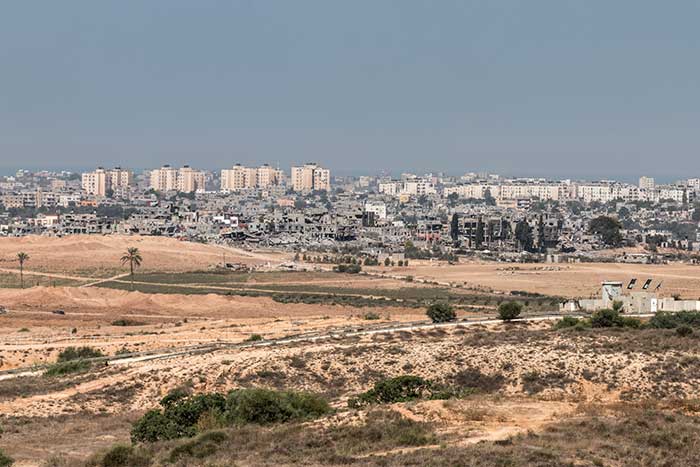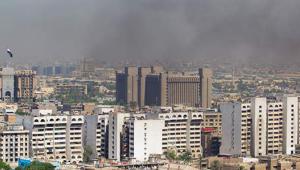web_gazastrip_istock_50830384_medium.jpg

The Gaza strip. UNCTAD said he cost inflicted by three Israeli military occupations in Gaza between 2008 and 2014 is estimated to be at least three times the size of area’s annual GDP.
Israel’s withholding of the territory’s fiscal revenues, the takeover of land and natural resources, and forced dependency on Israel, are hollowing out the Palestinian economy and fuelling unemployment and poverty.
The report, published yesterday by the UN’s Conference on Trade and Development, called for a systematic and comprehensive framework to establish the full economic impact of the occupation.
“To date, attempts to estimate the economic cost of occupation remain partial and ad hoc,” the report said. “Examination of these costs and of other obstacles is essential to place the Palestinian economy on the path to sustainable development and to achieve a just settlement of the conflict, as well as lasting peace in the Middle East.”
UNCTAD highlighted occasions where Israel has directly restricted Palestine’s access to customs duties and value added tax revenues that Israel collects on Palestinian imports transiting through its ports – funds which it then has to transfer back to the Palestinian authority.
The report noted that this arrangement allows Israel to exercise “undue control” over Palestinian fiscal affairs. These levies account for about three quarters of the Palestinian authority’s revenue.
Israel regularly withholds these funds from Palestine, with the most recent occasion being in 2015, when Israel suspended the transfer of the funds for the first four months of the year, following Palestine’s decision to join the International Criminal Court.
UNCTAD, the International Monetary Fund and the World Bank have all agreed this arrangement results in the annual leakage of hundreds of millions of dollars from Palestine’s fiscal revenue to Israel.
In addition, Palestine has to pay “unjustifiably high” handling fees to Israel, UNCTAD said, for collecting these taxes on its behalf, resulting in $50m worth of overpayments to Israel in 2014, according to the World Bank.
Palestine also suffers a massive trade deficit ($5.2bn) with Israel, which has accounted for more than 70% of Palestinian imports and absorbed about 85% of its exports in recent years.
“Trade is the very cornerstone upon which economic development can be built, and boosting sustained growth requires better trade,” pointed out UNCTAD secretary-general Mukhisa Kituyi.
UNCTAD said this “one-sided customs union and obstacles to trade and productive activities” renders Palestine a captive market for exports from Israel. Other obstacles include bans on items like fertilizers, steel, telecommunications equipment and spare parts to Gaza.
The territory has also suffered a “continuous process of de-agriculturalisation and de-industrialisation”, the report continued.
Blocking Palestinian access to cultivatable land in one section of its territory, which accounts for more than 60% of the West Bank and is known as Area C, cost the Palestinian economy $4.4bn in 2015 (35% of GDP).
In Gaza, producers are denied access to half of the cultivatable area and 85% of fishery resources. Moreover, the cost inflicted by three Israeli military occupations between 2008 and 2014 is estimated to be at least three times the size of Gaza’s annual GDP.
Since 1967, more than 2.5 million productive trees have been uprooted, not including 5,600 that were vandalised last year. Palestinians are also prohibited from maintaining or digging water wells, while Israel extracts 82% of the territory’s ground water.
UNCTAD said this leaves Palestine with “no choice but to import its own water from Israel to cover 50% of its consumption”.
Meanwhile slow reconstruction efforts, despite billions of dollars in funds, further stifle the Palestinian economy and cause substantial human suffering, the report noted. Many more occupation-related factors make the situation worse, including the demolition of Palestinian houses and the growth of Israeli settlements, blockades, the loss of policy space, and the fragmentation of domestic markets.












